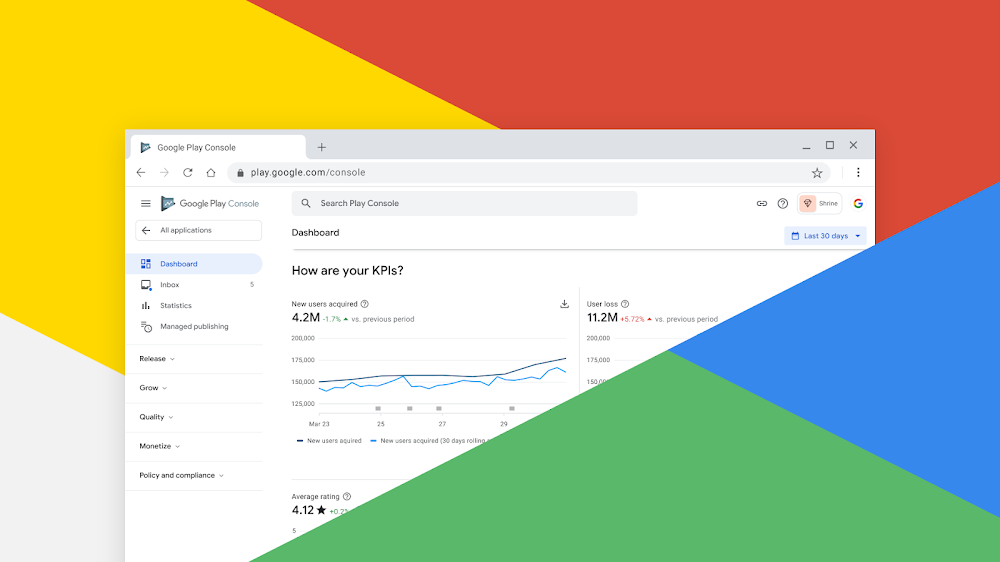Google Play Console is used by developers to publish games and apps on the Google Play Store. The console offers a set of useful tools and features. This enables an individual or an organization to evaluate the performance of an app. And now, Google Play Console Launched a suite of new Metrics and Benchmarks. With this new suite, the developer can monitor their app or games engagement and monetization trends, which will enable them to make better decisions on the future of those apps.

Also Read: Google Maps for Android update brings dark theme officially
Google’s success lies in the way they offer their service to both the end-user and the developer. Most Play Store apps are from individual developers or from smaller organizations with a very minimal workforce. It might be easy for a larger organization with a bucket full of apps to evaluate and monetize them. But these smaller groups have a hard time grabbing feedback and usage statistics from the end-user. With this new suite of metrics and comparative benchmarks, Google seems to make things easier for the developer(s). So let’s see what this new “suite” has in it for the developers.
Better Engagement and Monetization Metrics
Google introduced a new set of engagement and monetization metrics for evaluating app and game performance. These new metrics include the following.
- DAU/MAU
It is the ratio of DAU (Daily Active Users ) to MAU (Monthly Active Users). Note that a month is a period of 28-days. This ratio can be used to check if the app has any habitual use.
- 28-day returning users
It is the percentage of DAU (daily active users) who used the app for the month.
- DAU & MAU growth rates
The rate at which the DAU and MAU are increasing. It is a useful tool for measuring the rate of growth of the audience.
- ARPDAU
ARPDAU is the ratio of average revenue per day to the daily active users. The ARPDAU can be used to determine the success rate of the app/game. - Average purchase value
The average purchase value, as the name indicates, is the average revenue from each transaction. - Purchases per buyer and User-buyer ratios
The number of transactions a user makes. The developer will also get the percentage of DAUs and MAUs who become buyers.
Performance Tracking with Peer set Comparison
Peers are those guys who are not directly competing with you but offer similar apps and games as you do. The developer will now be able to compare up to 250 different types of apps and games. The results (good or bad) can be used to improve the apps and services accordingly.
Filters like Country will come in real handy for comparing performance with peers.
![]()
Privacy Protection
Even though the usage statistics are shared with the developer. They won’t get anything that would otherwise compromise user privacy. The developer will only be given basic information like how many times the user opened the apps. Any sensitive information like what the user was doing will not be shared with the developer.
The developer will also get all the required protection. All the peer comparison metrics come with privacy protection for the developer. Also, the Google Play Store tagging system won’t share the performance of individual apps.
Must See: Amazon Music arrives on Chromecast with Google TV
As said earlier, Google’s success is built on the support and resources they have for both the end-users and the developers of all shapes and size. Even though the company is good at trashing smaller competitors, they do provide all the support and resources needed for the developers. Support and resources that will help them improve their products.
